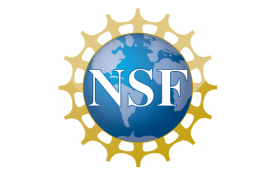-

National Science Foundation Opportunity: Predictive Intelligence for Pandemic Prevention
This initiative focuses on research and capabilities needed to tackle challenges in infectious disease pandemics through prediction and prevention.
-
Hug (Just a Little) Longer!
We’ve all missed connection — especially hugs. Today, try hugging someone a little bit longer than you normally would. When you’re ready to stop the hug, remind yourself to stay close for just five more seconds. Stay present, and tune in to all your senses as you enjoy the embrace. Why Am I Doing This? During the pandemic, we were cautious about hugging friends, strangers and even family members who didn’t live with us. But now, as more people get vaccinated, you can start to hug again. There is a surprisingly large body of science devoted to the health benefits of hugs. The broad conclusion is that hugs are good for you.
-
Burnout: Modern Affliction or Human Condition?
Burnout is generally said to date to 1973; at least, that’s around when it got its name. By the nineteen-eighties, everyone was burned out. In 1990, when the Princeton scholar Robert Fagles published a new English translation of the Iliad, he had Achilles tell Agamemnon that he doesn’t want people to think he’s “a worthless, burnt-out coward.” This expression, needless to say, was not in Homer’s original Greek.
-
The Puzzling Psychology of Procrastination and How to Stop It
You’re procrastinating right now, aren’t you? Don’t worry, we’re not judging. But we are here to tell you that you’re not alone: an estimated 20 per cent of adults (and above 50 per cent of students) regularly procrastinate. In fact, procrastination – defined as voluntarily and unnecessarily delaying a task – is so widespread that scientists have even found evidence of the behaviour in pigeons. So, why do so many people procrastinate? What causes it? And, most importantly, how can you stop procrastinating? ...
-
These are the Text Messages That Get People to Take Vaccines
More than 169 million Americans have received one or both doses of a coronavirus vaccine, but demand is falling off rapidly. Doses administered peaked at an average of 3.3 million per day in mid-April but are now down to under 1.5 million per day. To meet the goal of getting at least one shot to 70 percent of American adults by July 4, the Biden administration announced Wednesday that it would partner with child-care centers to free up people to get injections, and provide vaccine information (and even doses) through Black-owned barbershops and beauty salons.
-
Need a Reset? Take the 10-Day Fresh Start Challenge
If there was ever a perfect time to make a life change, this is it. Behavioral scientists have long known that times of disruption and transition also create new opportunities for growth and change. Disruption can come in many forms, and it happens when life knocks us out of our normal routines. It can be moving to a new city, starting a new job, getting married or divorced or having a child. And for many of us, there’s never been a bigger life disruption than the pandemic, which changed how we work, eat, sleep and exercise, and even how we connect with friends and family.

